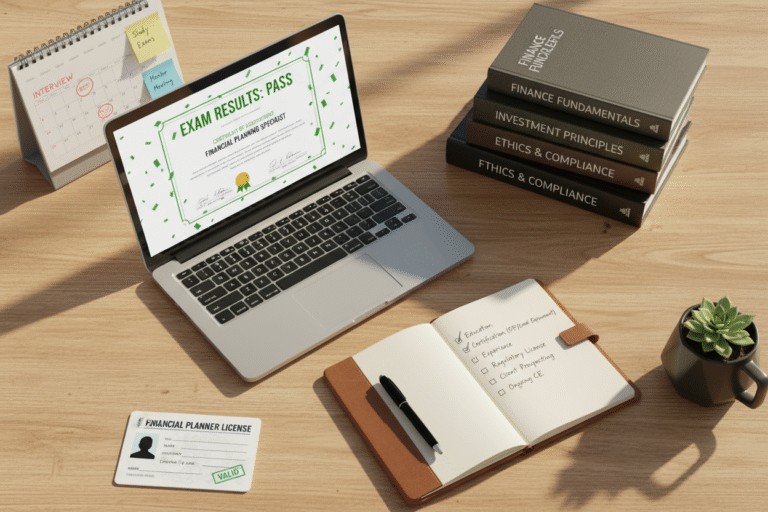DIY vs. Professional Financial Planning: Which Route Should Retirees Take? | Vanika Retirement Guide
- Introduction
- The Allure of DIY Financial Planning
- The Challenges of Going Solo
- Why Professional Financial Planning Might be Worth the Investment
- Comparing Costs: DIY vs. Professional Financial Planning Cost
- Common Misconceptions About Financial Advisors
- Making the Decision: Questions to Ask Yourself
- Conclusion
- Frequently Asked Questions
Introduction
Ah, ! Those golden years where you can finally kick back, relax, and enjoy the fruits of decades of labor—planning for the life you want in retirement.
But wait, there’s a catch. How do you manage those fruits? Do you take the reins of your financial future, or do you hand them over to a seasoned professional?
This age-old debate of DIY vs. Professional Financial Planning is what we’re diving into today. So, grab your calculator or your financial advisor’s number, and let’s get started!
The Allure of DIY Financial Planning
Control. There’s an awesome feeling in taking control of your finances. It’s your money, after all. Going the DIY route means you decide where every dollar goes, how it’s invested, and when it’s spent. You also choose which accounts to use for your investments and select different funds as part of your investment choices. No middlemen, no waiting for appointments, just you and your financial dashboard.
Cost Savings. One of the biggest advantages of DIY financial planning is the cost savings. No professional to pay means you save a ton of fees and commissions. Over time those savings can add up to a bigger retirement nest egg. The earlier you start saving for retirement, the more you can benefit from compounding growth. Optimizing your saving strategies can help you reach your financial goals faster. Managing your own expenses also means you get to keep more of your money working for you.
Learning Experience. Going DIY is not just about money; it’s a learning journey. From market trends to tax laws, you become your own financial expert. Developing your own investment strategy is part of this process. It’s also important to understand the risks involved in investing so you can make informed decisions. With DIY planning you have access to many online tools and platforms to help you along the way. Using online resources can further improve your financial knowledge and confidence.If you need help, you can always talk to a bank or financial institution for professional advice.
The Challenges of Going Solo:
Time
While managing your finances can be fun, it’s not without its challenges. Keeping up with market trends, understanding tax laws, and constantly adjusting your portfolio can be time consuming. It’s not just about checking boxes; it’s about in-depth research and continuous learning. You also need to monitor your financial plan on an ongoing basis to make sure it’s aligned with your goals. Implementing complex financial strategies can be tricky and requires attention to detail. Staying up to date on changing financial regulations is important to avoid compliance issues.
Error
The financial world is complex. A simple mistake or oversight can cost you big time. Without a professional to guide you, you’re more likely to make errors which can be costly in the long run. Mistakes can also be subject to penalties or losses especially when dealing with retirement or tax-advantaged accounts. To avoid costly mistakes, it’s wise to consult a financial professional. For complex issues, it’s important to seek legal or tax advice to make informed decisions.
Emotional Investing
Money is emotional. When managing your finances it’s easy to let emotions like fear or greed dictate decisions. Without a neutral third party to guide you, you might make impulsive decisions that aren’t in your best interest.
Why Professional Financial Planning Might be Worth the Investment
Expert on Your Side
Financial advisors have seen it all. Market crashes, economic booms, changing tax laws – they know how to navigate the ever-changing financial landscape. Their expertise can be priceless especially during turbulent times. Professionals help with asset allocation to optimize your retirement portfolio, so your investments are diversified and aligned with your goals. Working with a retirement advisor allows you to create a personalized plan tailored to your needs. Having a team of professionals supporting your financial goals provides comprehensive guidance and support. Most professionals do not provide legal or tax advice, so you should consult qualified experts for those needs. Providers like Fidelity are well known for their guidance, tools and resources. Many professionals offer advisory services to help you make informed decisions. Advisors may be paid through fees and some receive commissions for selling or recommending financial products, so it’s important to understand how your advisor is compensated. Some advisors are registered broker dealers which means they are licensed to facilitate transactions and provide brokerage services.
Customized Solutions
Every retiree is unique. A professional can offer customized solutions that fit your goals, risk tolerance and financial situation. Professionals work closely with clients to design and implement plans. They create customized financial solutions to address your needs. These solutions help you achieve your retirement goals. Professional planners offer a full range of services from investment management to estate planning. You can access many investment solutions through professional advisors. Professionals manage income in retirement so you have cash flow. They help you choose the right retirement plan for your situation. With their guidance you can grow your retirement savings faster.
Planning for social security benefits is another area where professionals can help. Employers can benefit from professional planning to improve employee retirement outcomes. Employees get resources and strategies to help them reach their retirement goals. Businesses can access customized retirement savings vehicles and planning solutions. Companies get customized strategies for their workforce. Clients get personalized service and ongoing support.
Professionals manage different funds to maximize returns. They manage various accounts including retirement and investment accounts. Monitoring your account balances is part of their service. Investing in different securities is another way they diversify your portfolio. Financial security in retirement is top priority. Professionals guide you in managing your retirement money after you stop working. They help you determine if you are eligible for certain benefits or programs. You can expect clear communication and proactive planning from professional advisors. Managing expenses in retirement is also key, helping you control costs and preserve your wealth.
Peace of Mind
Perhaps the biggest benefit of hiring a professional is the peace of mind it brings. Knowing an expert is managing your finances will reduce stress so you can enjoy retirement.
Cost Comparison: DIY vs. Professional Financial Planning Cost
Initial Cost
Going DIY might cost you financial software subscriptions, courses or tools. Hiring a financial advisor might cost setup fees or initial consultation fees.
Ongoing Cost
DIY requires time investment. Time spent researching, monitoring and adjusting your financial plan. There’s also the cost of errors or missed opportunities.Both DIY and professional planning have ongoing costs such as software updates, transaction fees or advisory fees. Professionals are usually paid through fees which may be asset based or flat but you should ask how they are paid. Some advisors receive commissions for selling certain financial products so be aware if they sell or are selling investments as part of their service. These costs can add up over time to your retirement savings. Managing multiple accounts can also add to the overall cost especially if each account has its own fee structure. Investing in different funds may have additional costs such as fund management fees or expense ratios. Review all costs regularly to ensure they are reasonable. Remember higher costs can reduce your retirement income in the long run.
The Value Proposition
While DIY can save on fees, you need to consider the ROI of hiring a professional. Could their expertise lead to higher returns that outweigh the costs?
Common Myths About Financial Advisors
“They’re Just After My Money!”
While there are fees associated with hiring a financial advisor, many operate under a fiduciary duty meaning they are legally obligated to act in your best interest. Financial planners may be paid through different structures such as flat fees, hourly rates or a percentage of assets under management. Some advisors receive commissions for selling financial products meaning they may earn money when they sell or recommend certain investments so you should understand how your advisor is paid and whether selling is part of their compensation model.
“I Don’t Have Enough Money to Need an Advisor.”
Regardless of the size of your nest egg a financial advisor can offer valuable insights. From tax planning to investment strategies their expertise can benefit anyone. Clients of all wealth levels can benefit from professional advice tailored to their unique financial situation.
“Advisors are for Active Trading, Not Retirement Planning.”
Financial advisors offer a holistic approach. They’re not just about active trading; they can help with estate planning, tax strategies and more. Many professionals provide advisory services that include fiduciary guidance, personalized investment advice and ongoing financial planning support. Often a team of financial professionals work together to develop and manage your retirement plan. These professionals work closely with clients to ensure their goals are met and their financial plans are on track.
Making the Decision – Questions to Ask Yourself:
- How confident am I in my financial knowledge?
- Do I have the time and patience to constantly monitor and adjust my financial plan?
- Am I okay with bearing the full responsibility for my financial future?
Conclusion
Whether you’re a DIY enthusiast or someone who prefers to leave it to the experts the key is to make informed decisions.
After all, retirement is about enjoying the fruits of your labor, not stressing
FAQs
What are the main differences between DIY and professional financial planning?
DIY financial planning is managing your finances on your own using tools, software and personal research.
Professional financial planning often includes advisory services where experts provide fiduciary guidance and personalized investment advice. Financial planners are another type of professional who can help with retirement and investment decisions. Working with a team of professionals such as retirement advisors and portfolio managers can ensure your plan is comprehensive and well managed. These professionals work closely with clients to understand their goals and provide hands on support throughout the planning process. They help with asset allocation ensuring your investments are aligned with your risk tolerance and retirement objectives. Developing a personalized strategy is a key part of professional planning as it helps you stay on track to meet your financial goals. Professionals also create customized plans tailored to your unique situation.
Are there any hidden costs in DIY financial planning?
While you might save on professional fees there could be ongoing expenses such as financial software subscriptions, courses or missed opportunities due to lack of expertise. Review these costs regularly to ensure they don’t outweigh the benefits. Managing multiple accounts can also add to the overall cost especially if each account has its own fee structure. Investing in different funds may have additional costs such as fund management fees or expense ratios. All of these costs can add up to your retirement savings if not monitored and managed carefully.
How do I know if a financial advisor is trustworthy?
Look for advisors with CFP (Certified Financial Planner) certification and check if they operate under a fiduciary duty meaning they’re legally obligated to act in your best interest. Also verify if the advisor is a registered broker dealer as this means they are licensed to provide brokerage services and comply with regulatory standards. Understand how the advisor is paid—some are paid through fees while others receive commissions for selling or recommending certain financial products. When advisors receive commissions from selling investments it can influence the products they sell so clients should always ask about compensation structures to understand any potential conflicts of interest. Fidelity is an example of a reputable provider known for its guidance, tools and advisory services. Financial planners are another type of professional who can help with retirement planning and may have different compensation models. Also read reviews and get referrals.
Can I start with DIY and then switch to a professional later?
Yes! Many people manage their finances and then seek professional help as their financial situation becomes more complex or as they near retirement. Professionals can help implement your financial plan and ensure your strategies are put into action. You can also consult a financial advisor when you need expert guidance on investments, distribution strategies or setting financial goals. Having a team of professionals such as retirement advisors and portfolio managers provides comprehensive support for managing your assets and tax strategies. These professionals work closely with you to design, adjust and monitor your plan offering personalized guidance throughout the process.
How often should I meet with a financial advisor?
You’ll typically have an initial series of meetings to set up your financial plan. After that you might meet annually to review and adjust or more frequently if there are significant changes in your financial situation.
You should review your financial plan on an ongoing basis to ensure it remains aligned with your goals. During these meetings you and your advisor should update your strategy as needed to reflect any changes in your circumstances. You should also review your accounts together to monitor performance and make necessary adjustments. Also review your expenses during these meetings to manage costs and stay on track with your financial objectives.
Is it more expensive to hire a financial advisor when I’m close to retirement
No. Fees depend on the advisor’s pricing model – some charge a flat fee while others might charge a percentage of assets managed. Professionals can be paid through fees, commissions or a combination of both. Some advisors receive commissions for selling or recommending certain financial products which means they may sell investments and earn compensation from those transactions. Understand all the expenses involved as these can add up to your retirement savings over time.
What if I’m not happy with my financial advisor?
You’re not locked in. Clients who are unhappy with their advisor can always switch to another one or go the DIY route. There are many advisory services available offering fiduciary guidance, personalized investment advice and financial planning support. Having a team of professionals such as retirement advisors and portfolio managers can ensure your assets and tax strategies are managed effectively.
Are there online platforms or tools that can help with DIY financial planning?
Yes, there are many online platforms, apps and tools that can help with budgeting, investing and overall financial planning. You can access a variety of online tools that make it easy to manage your finances from anywhere. These platforms offer valuable resources such as calculators and educational content to support your financial decisions. You can manage your accounts online, track balances and monitor transactions. Many platforms also allow you to invest in different funds including mutual funds and ETFs directly through their interfaces. You can create your own strategy for retirement or investment planning using these online tools. You can also create a personalized plan with the help of online resources tailored to your financial goals. Some popular ones include Mint, Personal Capital and Betterment.
How do I determine my risk tolerance for investments?
Risk tolerance is individual and can be determined through questionnaires, self-reflection on your comfort with market fluctuations and discussions with financial professionals.
Understand the risks involved in different investment choices as these can impact your long-term financial outcomes.
Asset allocation plays a key role in managing risk by diversifying your investments across different asset classes.
Having a clear strategy for risk management can help you stay on track with your financial goals.
You may also want to consult a professional to help assess your risk tolerance and develop an investment plan.
Can a financial advisor help with estate planning or insurance needs?
Many financial advisors offer holistic services which include estate planning, insurance recommendations, tax strategies and more. However most professionals do not provide legal or tax advice so it’s important to consult qualified experts for complex legal or tax matters. For estate or insurance planning you may want to consult a professional to ensure your needs are met. Assembling a team of professionals such as retirement advisors, portfolio managers and tax specialists can help you develop a comprehensive plan and manage your assets effectively.
What’s the biggest advantage of hiring a financial planner?
The peace of mind knowing a seasoned expert is overseeing your finances, offering customized strategies and navigating the complexities of the financial world on your behalf. Professionals work closely with you to understand your unique needs and goals, ensuring a collaborative approach throughout the planning process. By leveraging a dedicated team of financial specialists you get comprehensive support in managing your assets and tax strategies. Their advisory services provide trusted guidance and personalized investment advice helping you achieve your retirement and financial goals with confidence.
How do I keep track of my investments and financial plan?
Whether you’re going DIY or with a professional it’s important to regularly review your investments and overall financial plan. Make sure to monitor your accounts to stay updated on balances and activity. Track the performance of your funds to ensure your investments are meeting your expectations. Review your strategy regularly to adapt to changes in your goals or market conditions. It’s important to review your plan on an ongoing basis to maintain alignment with your objectives. Use available resources such as online tools and expert insights to track your financial progress. Many online platforms offer dashboards and financial advisors often provide periodic reports.
Are there any tax implications I should be aware of when managing my finances?
Yes, investment decisions have tax implications. Certain transactions may be subject to taxes, penalties or other conditions depending on your situation. It’s important to understand tax efficient investing, capital gains tax and other tax related issues whether you’re managing your finances or working with a professional. Most professionals do not provide legal or tax advice and do not provide legal guidance specific to your situation. You should consult a qualified tax professional to get personalized tax advice. Determine if you are eligible for specific tax benefits or incentives is important for effective planning. Tax laws and regulations change frequently so stay updated on current regulations.
How do I ensure my financial plan aligns with my retirement goals?
Start by defining your retirement goals. How much will you need? What kind of retirement do you want? Once you have a clear picture you can create a personalized plan that matches your aspirations. Having a solid strategy is key to staying on track to your goals. Working with a team of financial professionals can be very helpful. These professionals work with you to help you achieve your retirement goals, offering guidance and customized solutions to your needs. Whether you go DIY or work with a professional aligning your plan with your goals is key.
Can I do both DIY and professional financial planning?
Yes! Some people manage certain aspects of their finances and seek professional advice for specific areas like investments or tax planning. You can consult a financial advisor for advice tailored to your situation. Assembling a team of professionals such as retirement advisors and portfolio managers can provide comprehensive support. These experts work with you to understand your goals and offer personalized recommendations. By developing a retirement strategy that combines your own research with professional input you can create a plan that leverages both DIY and expert advice. It’s all about finding the right balance for you.








4 Comments
Comments are closed.